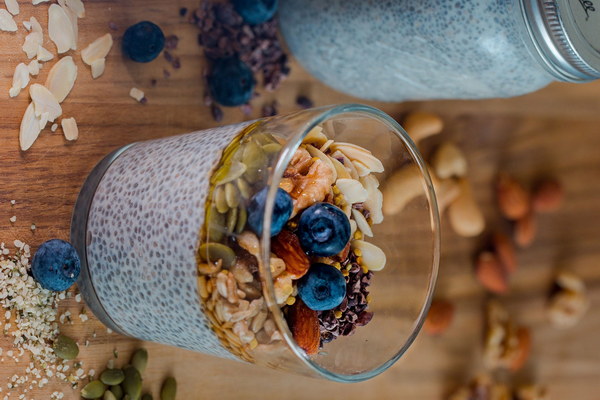Effective Lung Detoxification and Phlegm Removal Strategies for Chronic Smokers
Introduction:
Chronic smoking can significantly damage the lungs, leading to various respiratory issues such as cough, phlegm, and even chronic obstructive pulmonary disease (COPD). In this article, we will discuss effective strategies for lung detoxification and phlegm removal for those who have been smoking for years. By following these steps, you can help improve your lung health and overall well-being.
1. Quit Smoking:

The first and most important step in lung detoxification is to quit smoking. By ceasing this harmful habit, you will begin to reverse the damage caused by the harmful chemicals in cigarettes. Seek support from friends, family, or professionals to help you quit smoking for good.
2. Increase Hydration:
Drinking plenty of water is crucial for lung detoxification. Water helps thin the mucus, making it easier to cough up and remove the phlegm from your lungs. Aim to drink at least 8 glasses of water per day, and consider adding herbal teas or warm liquids like ginger tea to further support lung health.
3. Use Natural Remedies:
Natural remedies can help in lung detoxification and phlegm removal. Some popular options include:
a. Honey and Lemon: Mix one tablespoon of honey with one tablespoon of lemon juice and a glass of warm water. Drink this mixture daily to help thin mucus and soothe your throat.
b. Garlic: Garlic has natural antibacterial and antiviral properties that can help fight infections and improve lung health. Add garlic to your meals or take garlic supplements (after consulting with a healthcare professional).
c. Eucalyptus: Eucalyptus oil is known for its respiratory benefits. Add a few drops of eucalyptus oil to a diffuser or inhale it directly to help clear your lungs and reduce phlegm.
4. Exercise Regularly:
Regular exercise can help improve lung capacity and strengthen the respiratory muscles. Engage in activities such as walking, jogging, cycling, or swimming to promote better lung function. Aim for at least 30 minutes of moderate-intensity exercise most days of the week.
5. Maintain Good Hygiene:
Practicing good hygiene can help prevent respiratory infections and reduce the buildup of phlegm. Regularly wash your hands, avoid close contact with sick individuals, and use tissues to cover your mouth and nose when coughing or sneezing.
6. Avoid Exposure to Pollutants:
Exposure to air pollutants can worsen respiratory issues and increase mucus production. Try to minimize your exposure to smoke, dust, and other harmful particles. If you live in an area with high pollution levels, consider using an air purifier in your home.
7. Consult a Healthcare Professional:
If you have chronic respiratory issues, it is important to consult a healthcare professional. They can provide personalized advice and recommend additional treatments or medications to help you manage your condition.
Conclusion:
Chronic smoking can have severe consequences for your lung health, but it is never too late to start taking steps towards better lung function. By quitting smoking, increasing hydration, using natural remedies, exercising regularly, maintaining good hygiene, avoiding pollutants, and seeking professional advice, you can help detoxify your lungs and reduce phlegm buildup. Take control of your health and work towards a cleaner, healthier respiratory system.









